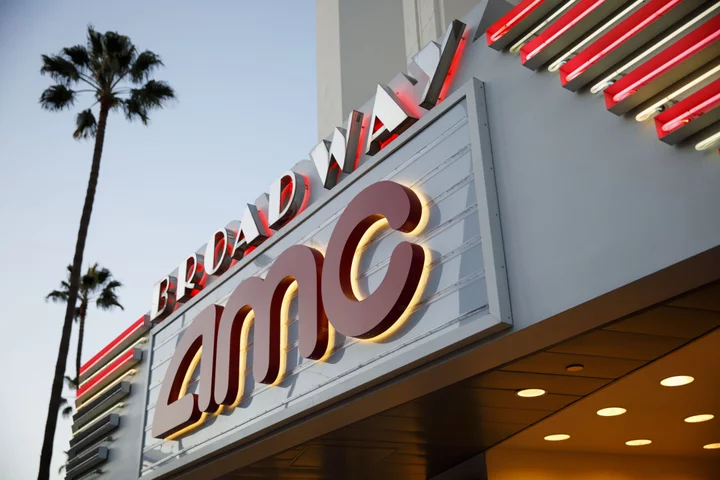AMC Entertainment Holdings Inc. won court approval of a stock conversion plan that had spurred a shareholder lawsuit and cast a cloud over the movie theater chain’s efforts to secure new financing.
The settlement, approved on Friday, includes extra shares for individual investors, thousands of whom had opposed it, citing the dilution of their shares among other concerns. Many of them fueled the pandemic-era “meme stock” rally that saved AMC from a bankruptcy filing.
The ruling by Delaware Chancery Court Judge Morgan Zurn caps a protracted and bitter legal fight over AMC’s preferred equity units, or APEs, which pitted the company’s top executives against part of that retail investor base. Last month Zurn surprised the market by rejecting an earlier version of the settlement, sending the value of AMC’s regular shares soaring and the APEs plunging. She found that the original deal waived too many potential claims against the company.
The settlement has been valued at as much as $120 million, depending on AMC’s volatile stock price. It wasn’t immediately clear when the APE conversion would take place, but AMC officials have said they hope to raise new financing by the middle of this month.
The case began when a pension fund and other shareholders challenged the plan to let APE holders — many of them arbitragers betting on the stock conversion — vote on AMC’s recapitalization proposals. Hedge fund Antara Capital LP holds roughly 30% of the APEs. More than 2,800 shareholders opposed giving the APE investors a vote.
In rejecting the earlier version of the settlement, Zurn cited sections that would have waived any claims by holders of the common stock, including those also holding APEs. The resubmitted settlement included a narrower release, waiving only claims “that relate to the ownership of common stock.”
The meme stock investors’ role has made the case unusual, especially as the focus of the legal proceedings has turned to the accord. In writing to the court to oppose the stock conversion plan, some expressed the dilution concerns, while others cited market manipulation theories that have spread online.
AMC created the APEs last year to get around a share limit it couldn’t lift without the support of retail investors. With the settlement it aimed to address their objections by handing out one extra class A share for every 7.5 held, a ratio that has put the pact’s value at around $110 million to $120 million.
The lead objector to the accord, a retail trader named Rose Izzo, has sought to derail it, take over the case and resume the court fight on behalf of others in her camp who feel “stabbed in the back” by AMC and its leaders, her lawyer has said.
In announcing the revised accord last month, AMC Chief Executive Officer Adam Aron stressed the “critical” importance of getting the deal approved and the APEs converted so the company can raise new equity capital.
Izzo has asked Zurn to put any stock conversion on hold to leave time for an appeal if the judge approved the settlement. Given the success of the blockbusters Barbie and Oppenheimer and AMC’s strong second-quarter financial results, the company’s “overhyped concerns and unreasonable demands ring hollow,” she said in a court filing.
AMC’s shares have been on a wild ride because some traders and hedge funds, as part of their arbitrage bets, have been adding to their APE positions and going short AMC shares. They’ve been betting they will be able to pocket the spread once the conversion goes through and narrows the price gap between the two. Zurn’s earlier ruling against the conversion proposal forced them to start unwinding that bet to limit their risk, boosting the shares.
Litigation continues on other fronts. AMC has sued its insurers for refusing to fund the settlement, and another holder of the common stock is seeking a court order requiring the company to hold its first annual meeting and board election in more than 13 months. Antara is facing a securities lawsuit in federal court seeking the return of its alleged short swing profits.
The case is AMC Entertainment Holdings Inc. Shareholder Litigation, 2023-2015, Delaware Chancery Court (Wilmington).
--With assistance from Jennifer Kay and Yiqin Shen.
Author: Jef Feeley, Michael Leonard and Chris Dolmetsch

